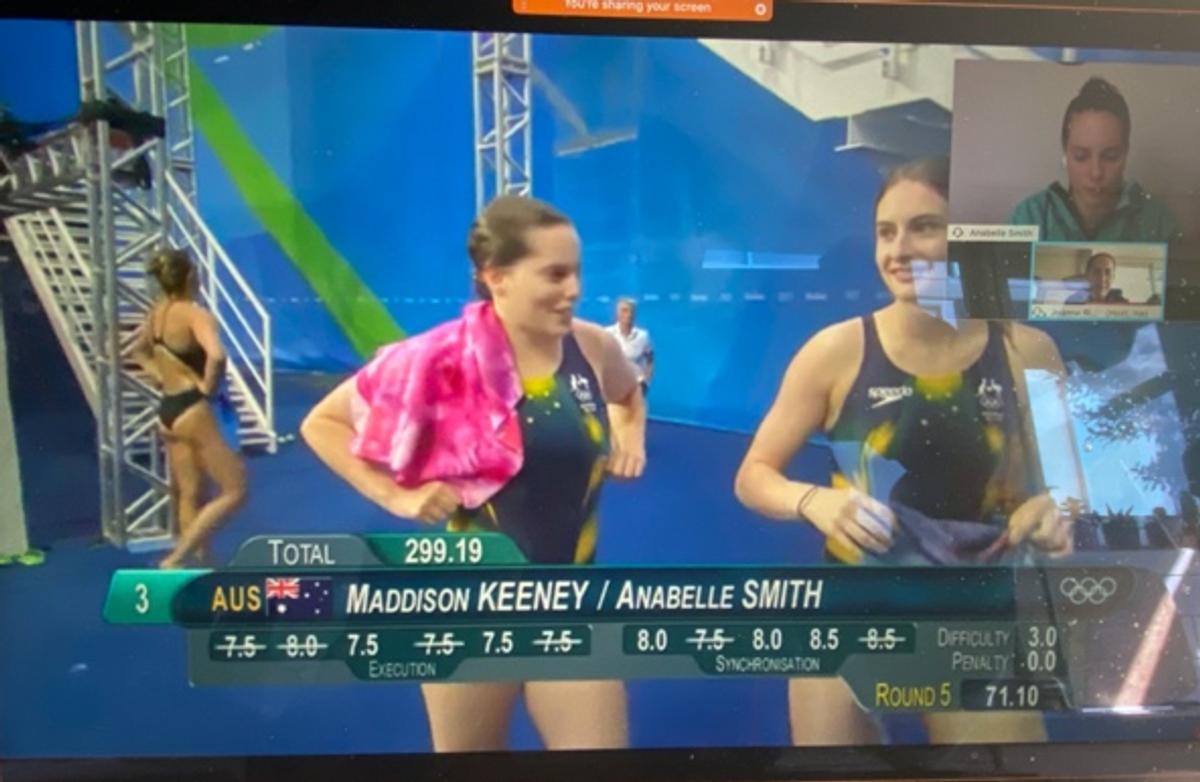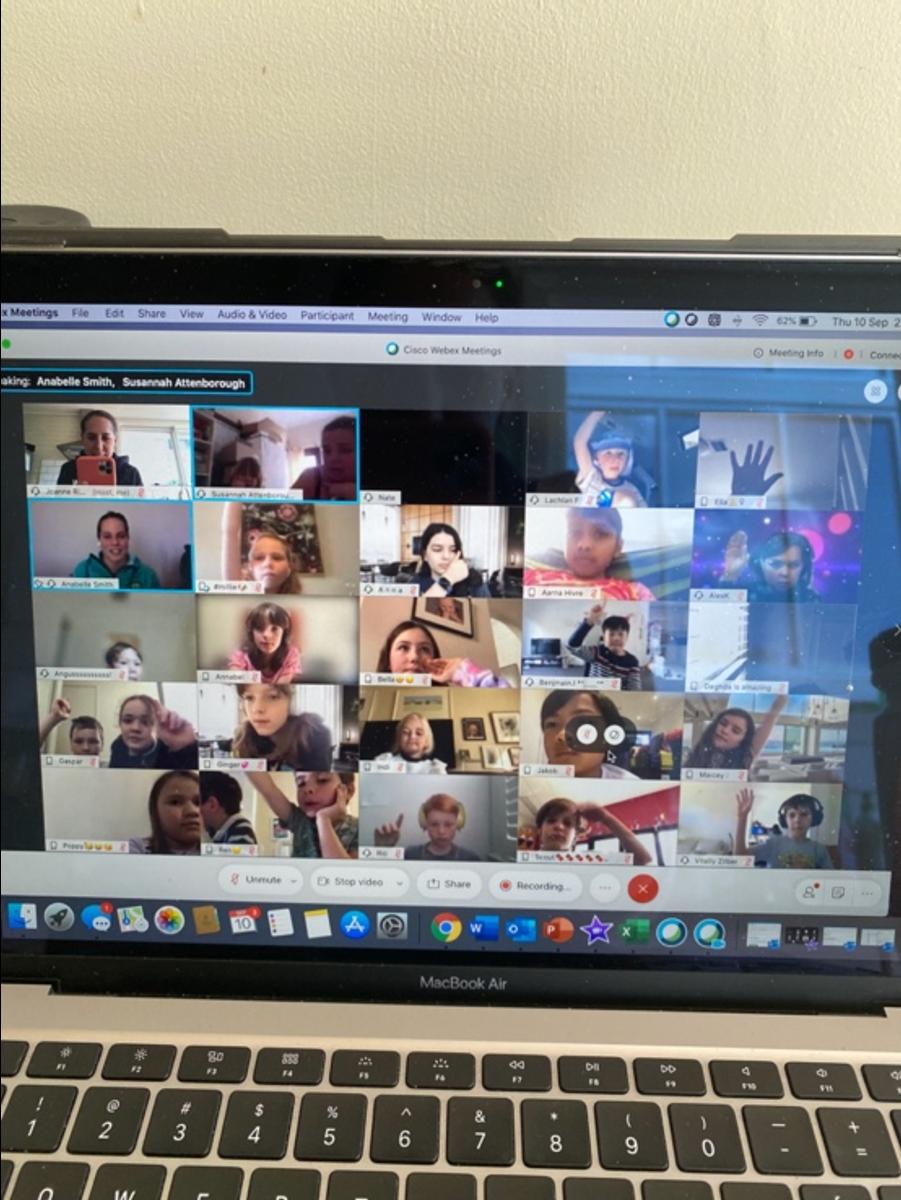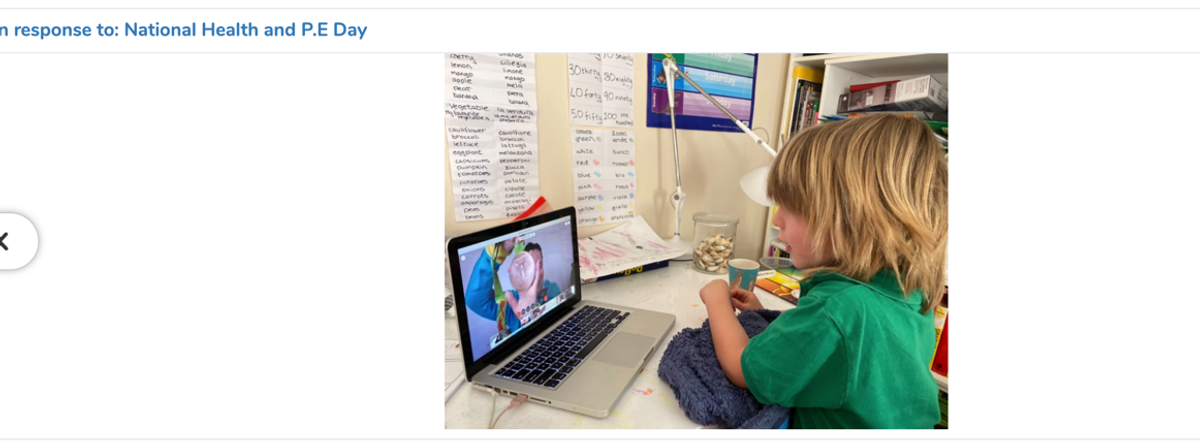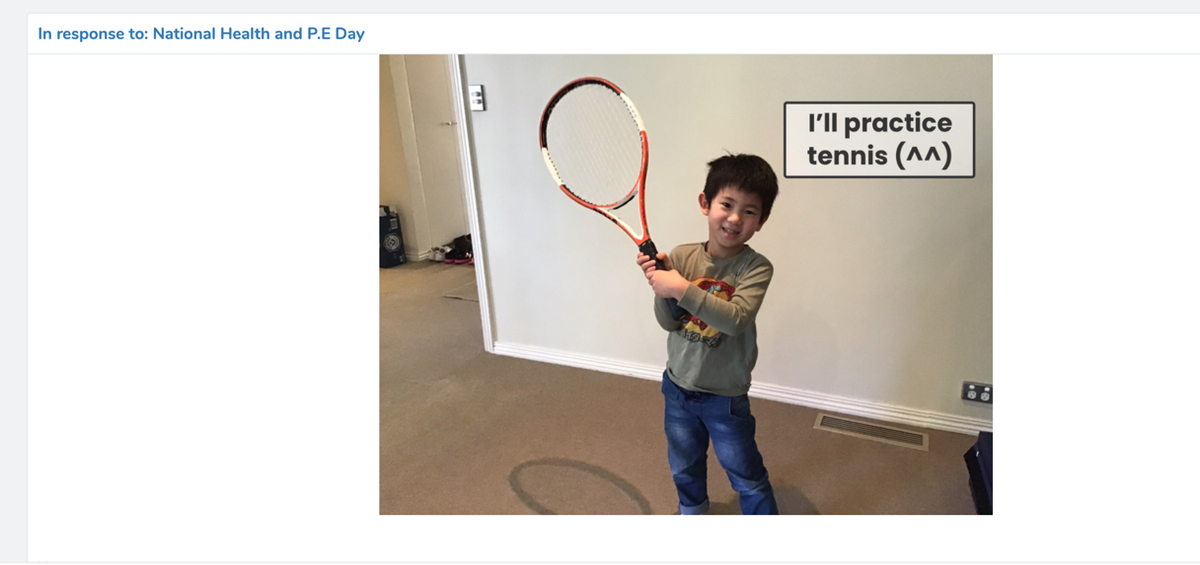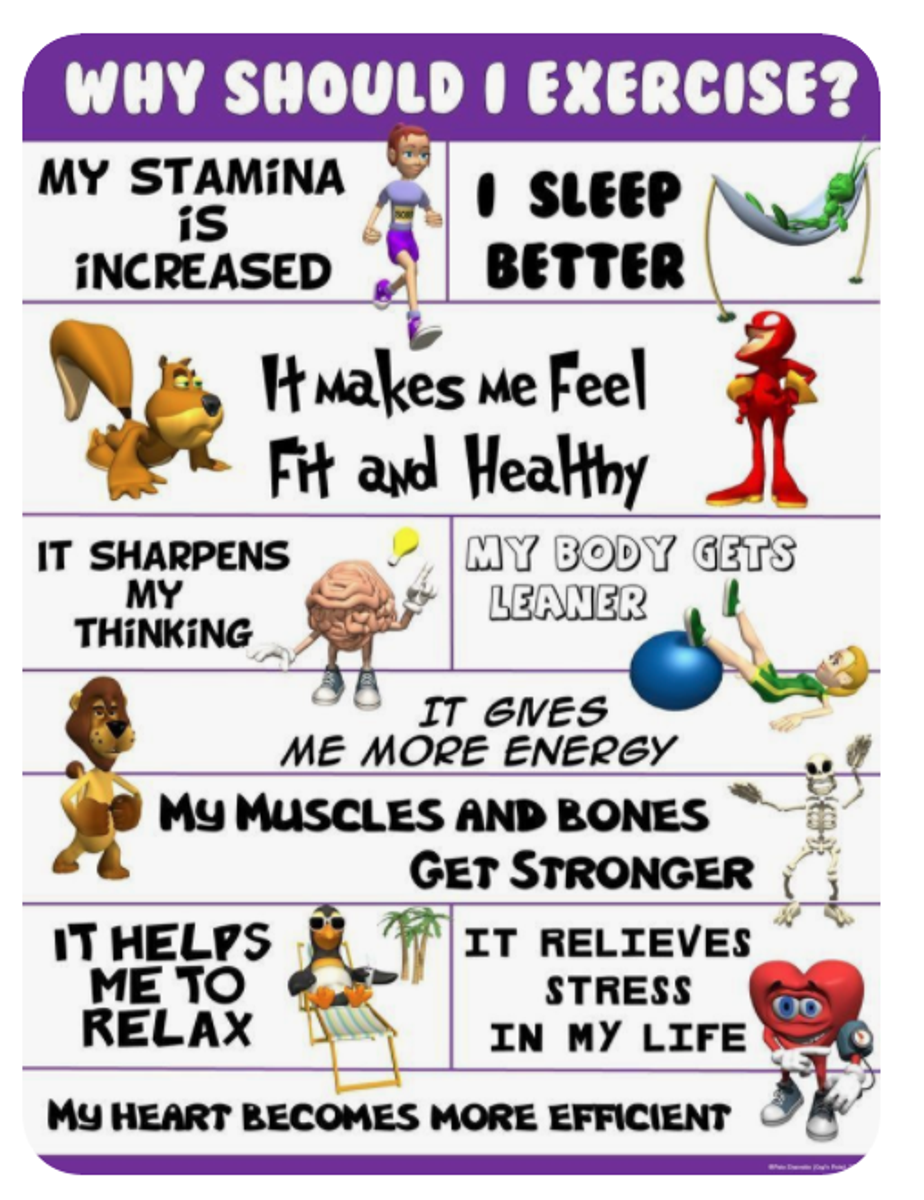Physical Activity

NATIONAL HEALTH AND P.E. DAY CELEBRATIONS
Last Thursday, Olympic diver Anabelle Smith presented her incredible story to over 60 students across the whole school via Webex. She shared a video of her medal-winning synchronised dive from the 2016 Rio Olympics, her bronze Olympic medal, her journey into diving as well as the devastation of this year’s postponed Olympics.
The timing of this presentation was great as our students were able to share connections with an Olympian. Gaining perspective that even elite athletes share the emotions that many of us are feeling right now is really powerful and a great alignment with our school value of resilience where we are all needing to adapt to the changes we face.
Students engaged with some fantastic questions and here’s a few of those shared and answered:
Q “How many hours a week do you train?”
A “30 hours roughly, which is a mix of different training; some in the pool, some in the gym and some on the trampolines”
Q “When the 2020 Olympics was postponed did you think you were going to do well?”
A “As the Olympics is every 4 years, you certainly train to be ready, so I was prepared and really looking forward to it. However, it’s still going to happen and it’s only a year away”
Q “Do you ever feel like you don’t want to train?”
A “Very often, it’s not always easy to want to always do something. Quite often, once you start you get energy so feel better and then you feel glad that you did it”
Q “Do you have a favourite motivational quote that helps you?”
A “Dream, believe, achieve – dream about it, believe you can do it and then you’re set to achieve it”
Q “Are you able to train now?”
A “Just like you, the pools are closed, so it’s been very inconsistent with our access, we’ve had to do lots of strength at home”
Q “What are you doing to stay fit at home?”
A “As I live in an apartment with my brother, we don’t have lots of space, so I’ve been mixing up my workouts to keep it fun e.g. yoga and different workout stations”
Thank you all for joining in. I certainly have gained a more positive perspective and feel invigorated to continue to be the best I can be, and I hope that all students feel the same. Given the positive feedback that students presented afterwards, I think this is the case.
In addition, we also had lots of people having a go at the Tennis Australia tennis activities. It was a great way to show how creative we can be at home with ‘at home sports equipment’ from using frying pans as tennis rackets and socks as balls. We can certainly make use of this in the future even when we are not remote learning. Great work to everyone who gave these activities a go and continue to practise at home.
REMINDER OF THE IMPORTANCE OF PHYSICAL ACTIVITY
It is MORE IMPORTANT NOW THAN EVER to make physical activity a part of your day. Current restrictions to stay home have changed our daily schedules. Remember the Department of Health details that for optimal health benefits, children and young people (aged 5–17 years) should achieve the recommended balance of high levels of physical activity, low levels of sedentary behaviour, and sufficient sleep each day.
A healthy 24 hours includes:
Physical Activity
- Accumulating 60 minutes or more of moderate to vigorous physical activity involving mainly aerobic activities.
- Several hours of a variety of light physical activities;
- Activities that are vigorous, as well as those that strengthen muscle and bone should be incorporated at least 3 days per week.
- To achieve greater health benefits, replace sedentary time with additional moderate to vigorous physical activity, while preserving sufficient sleep.
Sedentary Behaviour
- Break up long periods of sitting as often as possible.
- Limit sedentary recreational screen time to no more than 2 hours per day.
- When using screen-based electronic media, positive social interactions and experiences are encouraged.
Sleep
- An uninterrupted 9 to 11 hours of sleep per night for those aged 5–13 years and 8 to 10 hours per night for those aged 14–17 years.
- Have consistent bed and wake-up times.

